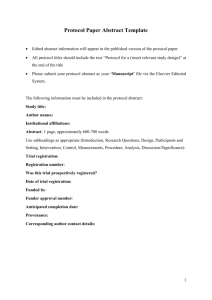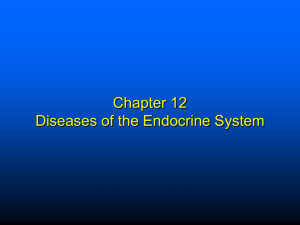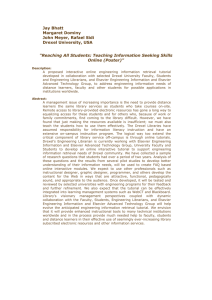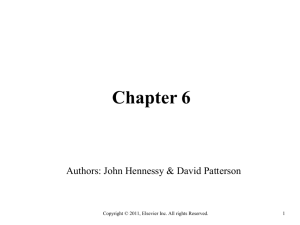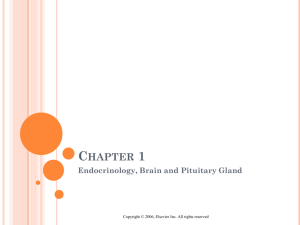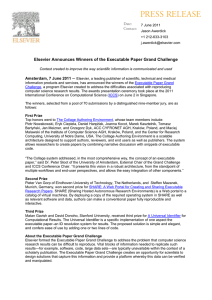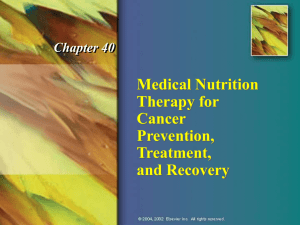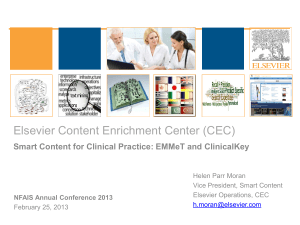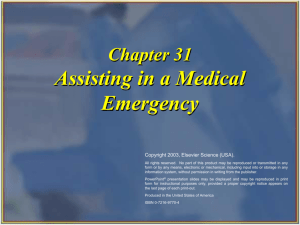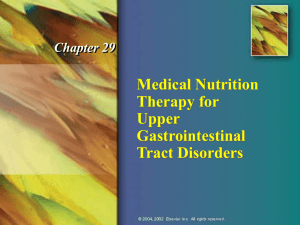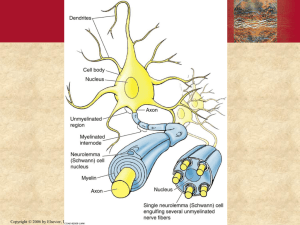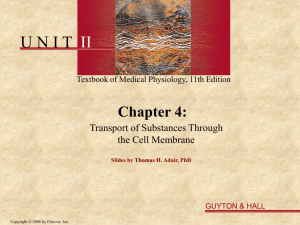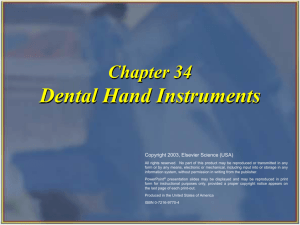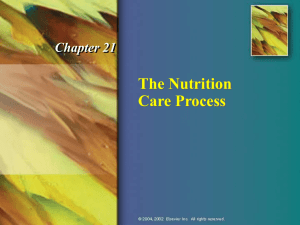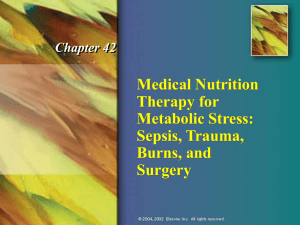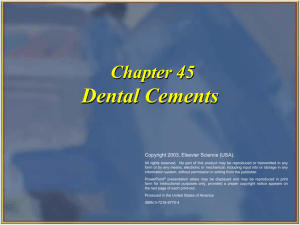Introduction to Physiology: The Cell and General Physiology
advertisement
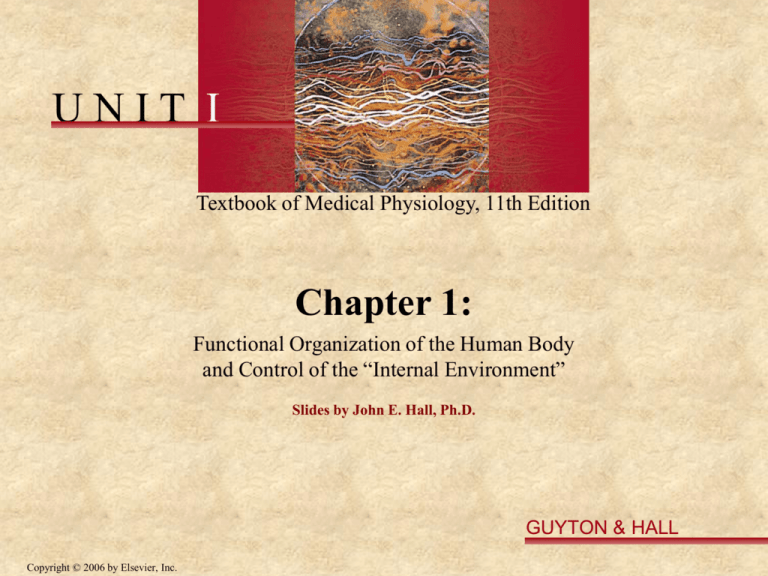
UNIT I Textbook of Medical Physiology, 11th Edition Chapter 1: Functional Organization of the Human Body and Control of the “Internal Environment” Slides by John E. Hall, Ph.D. GUYTON & HALL Copyright © 2006 by Elsevier, Inc. Physiology The science that is concerned with the function of the living organism and its parts, and of the physical and chemical processes involved. Copyright © 2006 by Elsevier, Inc. Pathophysiology • The study of disordered body function (i.e. disease) • The basis for clinical medicine Copyright © 2006 by Elsevier, Inc. Anatomy The study of the structure of the body. Copyright © 2006 by Elsevier, Inc. The Human Body - A Complex Society of Differentiated Cells • Cells: the basic structural and functional unit (~ 100 trillion) • Tissues: (e.g. muscles, epithelial, nervous ) • Organs: (e.g. kidney, heart, liver, pancreas) • Organ systems: (e.g. cardiovascular, urinary) Copyright © 2006 by Elsevier, Inc. Exchange Between the Capillaries and Interstitial Fluid Figure 1-2; Guyton & Hall Copyright © 2006 by Elsevier, Inc. Negative Feedback Control of Arterial Pressure Promotes Stability Art. Pressure Sympathetic Activity Heart Rate Vasoconstriction Copyright © 2006 by Elsevier, Inc. Baroreceptor Reflex : Negative Feedback System - Promotes Stability Set-point Error signal + Vasomotor Centers Sympathetic System Effectors Blood vessels, Heart Sensor Controlled Variable Baroreceptors Blood Pressure Copyright © 2006 by Elsevier, Inc. Cardiopulmonary Reflexes: Feed-Forward Control of Blood Pressure – Anticipates a Change Cardiopulmonary Receptors Set-point + Error signal Sympathetic System Vasomotor Centers Cardiopulmonary Pressures Effectors Blood vessels, Heart Sensor Controlled Variable Baroreceptors Blood Pressure Copyright © 2006 by Elsevier, Inc. Feedback and Feed-Forward Control • Negative feedback: promotes stability • Feed-forward: anticipates change • Positive feedback: promotes a change in one direction, often leading to instability, disease, and sometimes death. Copyright © 2006 by Elsevier, Inc. Positive Feedback of Hemorrhagic Shock Figure 1-3; Guyton & Hall Copyright © 2006 by Elsevier, Inc. Hemorrhagic Shock: Positive Feedback Severe Hemorrhage + Venous Return Cardiac Output Blood Pressure Coronary Blood Flow Cardiac Contractility Copyright © 2006 by Elsevier, Inc.
